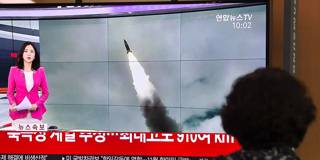We are entering a new and dangerous period in which nuclear competition or even use of nuclear weapons could again become the greatest threat to global stability. Less certain is whether today’s leaders are up to meeting this emerging challenge.
NEW YORK – Until just a few years ago, it looked as if the problem posed by nuclear weapons had been successfully managed, if not solved. American and Russian nuclear stockpiles had been reduced substantially from their Cold War highs, and arms-control agreements were in place that limited both intermediate- and long-range systems. But all of this now could come undone.
Progress over the last generation was not limited to the United States and Russia. Libya was persuaded to abandon its nuclear ambitions, Israel thwarted Iraqi and Syrian nuclear development, and South Africa relinquished its small nuclear arsenal. Iran signed the Joint Comprehensive Plan of Action (JCPOA), which constrained its ability to acquire many of the essential prerequisites of nuclear weapons. Most recently, the UN Security Council imposed tough sanctions aimed at persuading North Korea to give up its still modest and comparatively primitive nuclear weapons program, clearing the way for high-level talks between North Korean and US officials. And, of course, no nuclear weapon has been used in combat for three-quarters of a century, since the US dropped two nuclear bombs on Japan to hasten the end of World War II.
This past summer, however, the US withdrew from the 1987 Intermediate-Range Nuclear Forces Treaty after it concluded Russia had violated the INF’s terms. The treaty limiting longer-range US and Russian nuclear weapons will expire in 2021 unless it is extended, and it is not clear that it will be: both countries are committing substantial resources to modernize their existing arsenals.

NEW YORK – Until just a few years ago, it looked as if the problem posed by nuclear weapons had been successfully managed, if not solved. American and Russian nuclear stockpiles had been reduced substantially from their Cold War highs, and arms-control agreements were in place that limited both intermediate- and long-range systems. But all of this now could come undone.
Progress over the last generation was not limited to the United States and Russia. Libya was persuaded to abandon its nuclear ambitions, Israel thwarted Iraqi and Syrian nuclear development, and South Africa relinquished its small nuclear arsenal. Iran signed the Joint Comprehensive Plan of Action (JCPOA), which constrained its ability to acquire many of the essential prerequisites of nuclear weapons. Most recently, the UN Security Council imposed tough sanctions aimed at persuading North Korea to give up its still modest and comparatively primitive nuclear weapons program, clearing the way for high-level talks between North Korean and US officials. And, of course, no nuclear weapon has been used in combat for three-quarters of a century, since the US dropped two nuclear bombs on Japan to hasten the end of World War II.
This past summer, however, the US withdrew from the 1987 Intermediate-Range Nuclear Forces Treaty after it concluded Russia had violated the INF’s terms. The treaty limiting longer-range US and Russian nuclear weapons will expire in 2021 unless it is extended, and it is not clear that it will be: both countries are committing substantial resources to modernize their existing arsenals.